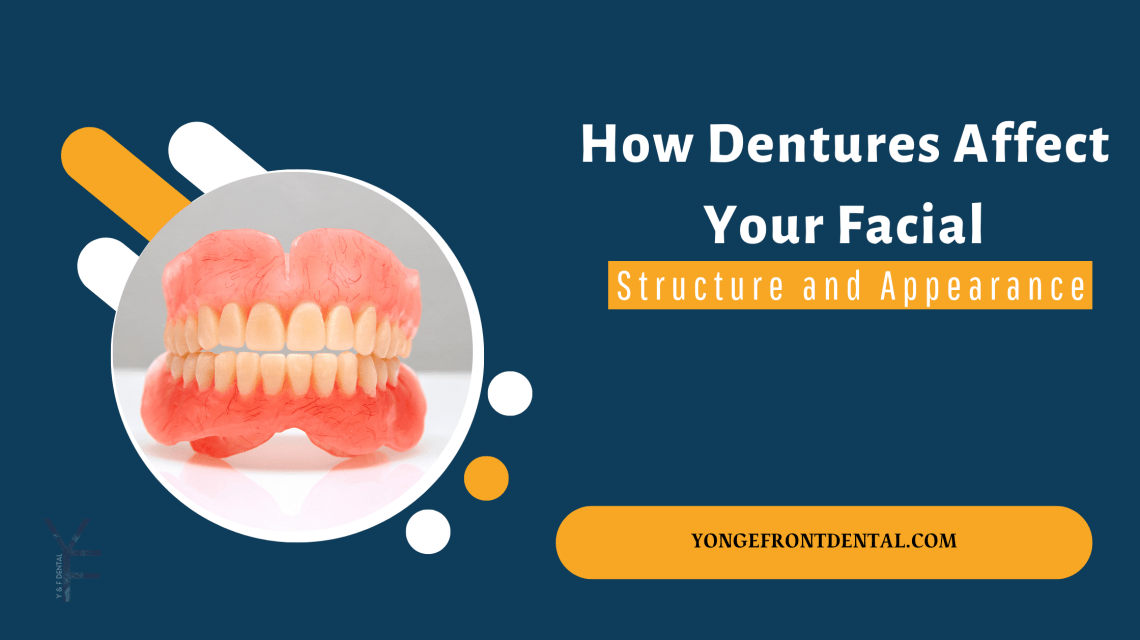Losing teeth is more than just a dental issue—it can significantly impact the way your face looks. Your teeth play a crucial role in maintaining the structure of your face, and when they are missing, the surrounding bone and tissues begin to change. Dentures help restore function and appearance, but they also bring noticeable changes to facial aesthetics.
How Dentures Affect Your Facial Structure and Appearance
Many people worry about looking different after getting dentures. Some fear they may appear older, while others are concerned about an unnatural look. The good news is that well-fitted dentures can help restore your facial proportions, preventing sagging skin and a sunken appearance.
In this article, we will explore how dentures influence facial structure, the challenges of poorly fitted dentures, and ways to ensure a natural and youthful look.
The Connection Between Tooth Loss and Facial Changes
To understand how dentures affect facial appearance, it’s important to first look at what happens when teeth are lost.
Bone Resorption and Facial Collapse
- When a tooth is lost, the jawbone no longer receives stimulation from chewing.
- Over time, the bone in that area begins to shrink in a process known as bone resorption.
- The loss of bone leads to a sunken or collapsed facial structure.
Effects on Facial Muscles and Skin
- Teeth support not just the jawbone but also the facial muscles.
- Without teeth, the muscles around the mouth lose their natural shape, causing the skin to sag.
- This often results in deep wrinkles around the mouth, a receding chin, and a hollow appearance in the cheeks.
Premature Aging and Wrinkles
- Missing teeth can make a person look older than they are.
- The lips may appear thinner as they no longer have underlying support.
- Wrinkles and folds become more pronounced due to the collapse of facial volume.
Dentures play a critical role in preventing these unwanted changes. However, the type of denture and how well it fits can influence the extent to which they restore facial aesthetics.

How Dentures Restore Facial Structure
Properly designed dentures do more than replace missing teeth; they help maintain facial proportions and provide support to soft tissues.
Supporting Facial Muscles
- Dentures help keep the cheeks and lips full by restoring lost volume.
- They maintain the natural alignment of facial muscles, preventing a sagging appearance.
Balancing Jaw Structure
- A well-fitted denture evenly distributes pressure, reducing the risk of excessive bone loss.
- Dentures that replicate the natural height of teeth help maintain the correct jaw position.
Improving Lip and Cheek Fullness
- Missing teeth can cause the lower third of the face to shorten.
- Dentures help restore the original height, preventing the lips from folding inward.

Types of Dentures and Their Impact on Appearance
Not all dentures provide the same level of support. The type of denture you choose can affect how your face looks over time.
1. Traditional Dentures
- Provide basic support but do not prevent jawbone shrinkage.
- Over time, adjustments may be needed as bone loss continues.
2. Implant-Supported Dentures
- Attached to dental implants, these dentures provide better stability.
- Help preserve jawbone density by stimulating bone tissue.
- Offer a more natural appearance and prevent facial collapse.
Choosing the right type of dentures can make a significant difference in how they affect facial aesthetics.
Common Problems with Poorly Fitted Dentures
While dentures are designed to restore function and appearance, poorly fitted ones can create new problems.
1. Sunken Cheeks and Hollow Appearance
- Ill-fitting dentures do not provide enough support to facial muscles.
- The cheeks may appear sunken, making the face look older.
2. Wrinkles Around the Mouth
- Loose dentures can lead to excessive movement, contributing to deep lines and wrinkles.
- Lack of proper alignment may cause an unnatural smile.
3. Jaw Pain and Discomfort
- Poorly fitted dentures can lead to uneven pressure on the gums and jaw.
- Over time, this discomfort can cause facial strain, affecting natural expressions.
Regular dental visits and adjustments are essential to avoid these issues and maintain a comfortable fit.

How to Ensure Your Dentures Look Natural and Support Facial Features
Getting dentures that fit well and look natural requires careful consideration. Here are some key factors to keep in mind:
Choose Custom-Fitted Dentures
- Avoid one-size-fits-all options, as they may not align with your natural facial proportions.
- Custom dentures are designed based on your unique jaw structure.
Consider Implant-Supported Dentures
- These offer better long-term stability and prevent bone shrinkage.
- They help maintain facial contours more effectively than traditional dentures.
Regular Adjustments and Maintenance
- Over time, bone structure changes, which may require denture adjustments.
- Visiting a dentist for periodic check-ups ensures a secure and natural fit.
Practice Good Oral Hygiene
- Keeping gums and dentures clean prevents irritation and maintains oral health.
- Proper care extends the lifespan of dentures and preserves their appearance.

Maintaining Facial Aesthetics with Dentures
Beyond just wearing dentures, there are additional steps you can take to keep your face looking youthful and well-supported.
Facial Exercises for Muscle Tone
Strengthening the muscles around your mouth and cheeks can improve facial definition. Try the following exercises:
- Cheek Lifts:Smile widely and hold for a few seconds to engage facial muscles.
- Lip Presses:Press your lips together tightly to maintain muscle tone.
- Jawline Stretches:Move your lower jaw forward and hold for a few seconds to strengthen the jaw muscles.
Stay Hydrated and Maintain a Balanced Diet
- Proper nutrition helps maintain skin elasticity and prevents excessive wrinkling.
- Staying hydrated keeps the skin around your mouth looking healthy.
Avoid Excessive Gum Shrinkage
- If you notice your dentures feeling loose, consult a dentist for adjustments.
- Consider implants if significant bone loss is occurring.
Taking these extra steps can complement your dentures in preserving a youthful and natural look.
Conclusion
Dentures do more than replace missing teeth—they play a crucial role in supporting facial structure and maintaining a youthful appearance. Properly fitted dentures can prevent sunken cheeks, wrinkles, and premature aging, allowing wearers to feel confident in their smiles. However, poorly fitted dentures can lead to discomfort and an unnatural look, which is why regular adjustments and choosing the right type of denture are essential.
If you’re considering dentures or need adjustments, consult with a dental professional to find the best solution for your needs. A well-designed set of dentures can restore not just your smile but also the overall harmony of your facial features.


